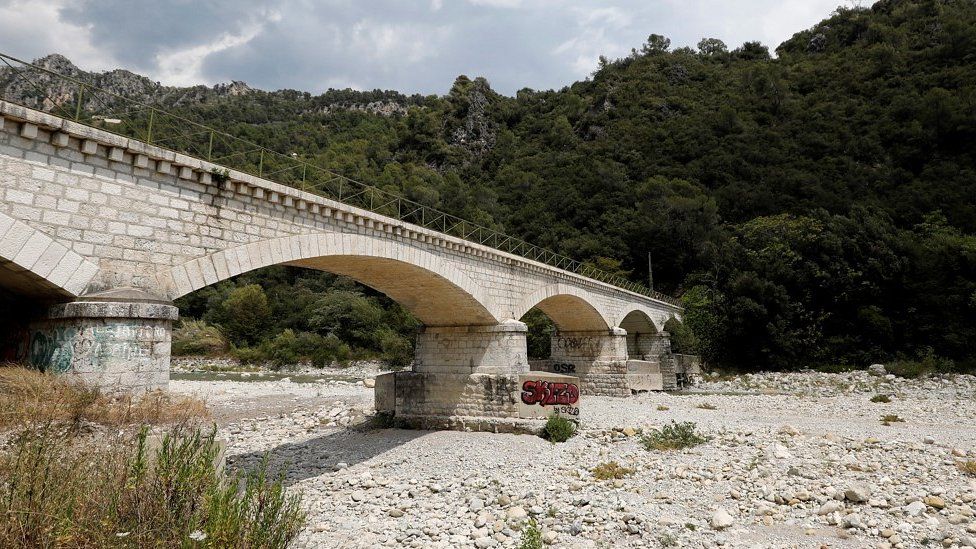ARTICLE AD BOX
 Image source, EPA
Image source, EPA
A dried-up river in Le Broc, southern France
The French government has set up a crisis team to tackle a historic drought that has left more than 100 municipalities short of drinking water.
Trucks are taking water to those areas, as "there is nothing left in the pipes", Minister for Ecological Transition Christophe Béchu said.
The prime minister's office said it was France's worst recorded drought. Water use is being restricted in 93 regions.
Dry conditions are expected to continue for at least the next two weeks.
The state energy company EDF has had to reduce output at some nuclear power plants, as river temperatures are too high to provide sufficient cooling, AFP news agency reports.
There are fears that the drought - hitting nearly all of mainland France - will reduce crop yields, exacerbating the food crisis caused by the war in Ukraine.
Europeans are already struggling with higher food prices as grain exports from Russia and Ukraine - among the world's top producers - are much lower than normal.
The heatwave that has baked France since June has prompted trees and bushes to shed their leaves early, creating scenes that look autumnal.
In July France had just 9.7mm (0.38 inches) of rain, making it the driest month since March 1961, the national weather service Meteo-France said.
Irrigation has been banned in much of the north-west the south-east of France to conserve water.
The corn harvest, used mainly for animal feed, is expected to be 18.5% lower this year compared with 2021, the agriculture ministry said. The main corn-growing areas are Alsace in the east and western regions, and the harvest is already under way.
Corn exports from France, Hungary, Romania and Bulgaria are all expected to be lower this year because of the heatwave, and those lower volumes will push prices up, French BFMTV reported.
Livestock farmers in the Alps are having to descend into the valleys by truck every day to collect water for their animals, which adds several hundred euros to their weekly fuel bills, Broadcaster TF1 reported.

 2 years ago
25
2 years ago
25







 English (US)
English (US)